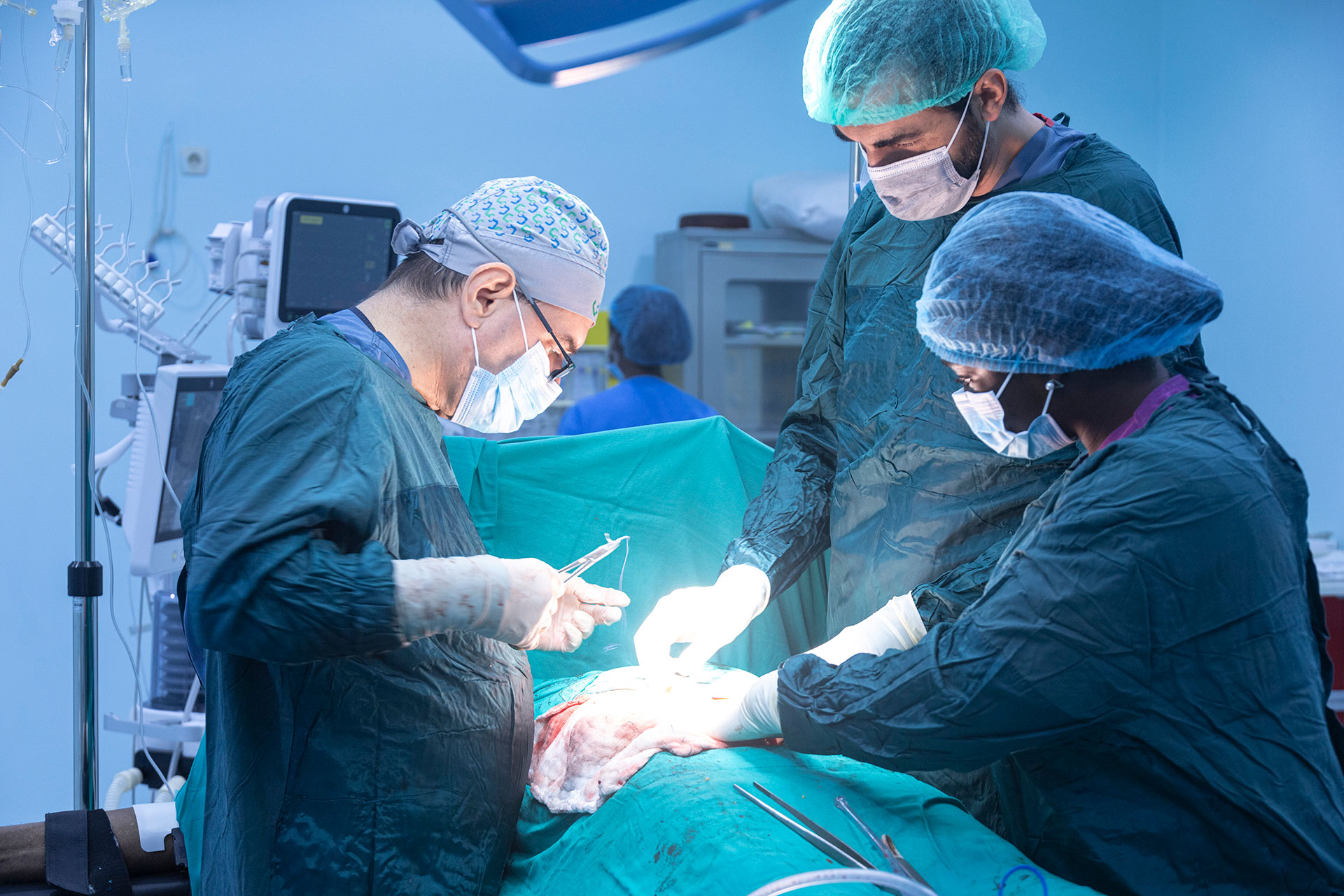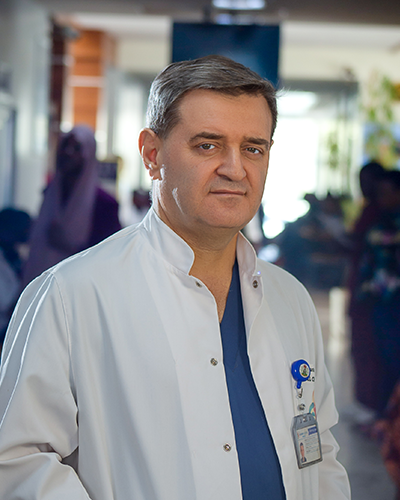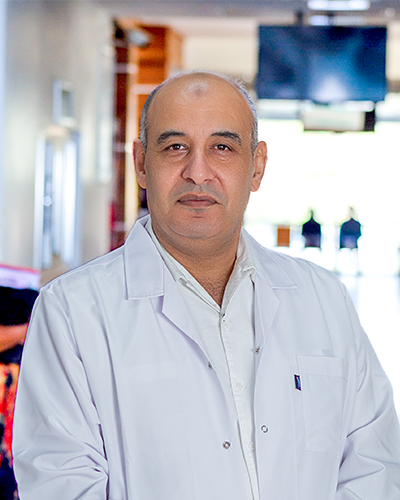Welcome to the General Surgery Department at Nizamiye Hospital. Removal of Appendix & Gallbladder, Breast Surgery, Treatment for Gallstones, Ulcer Management and many other more are the provided highest standard of surgical care for all your medical needs. We offer a comprehensive range of surgical services to address various medical concerns and conditions. Whether you’re seeking surgical treatment for a specific condition or looking to improve your overall well-being. Our board-certified surgeons and skilled medical staff are dedicated to providing the highest standard of surgical care for all your medical needs, we are here to serve you with expertise and compassion.
Why Choose Us?
Your surgical needs deserve the best care, and Nizamiye Hospital’s General Surgery Department is here to provide it. Here’s why you should choose us for your surgical requirements:
- Expertise:
Our surgeons are highly skilled in diagnosing and treating a wide range of surgical conditions, from common surgical issues to complex cases.
- Cutting-Edge Technology:
We employ state-of-the-art technology and advanced surgical modalities to provide the most effective and up-to-date care available.
Comprehensive Care:
Whether you have a common surgical condition or a complex surgical issue, we offer a holistic approach to surgical health, focusing not only on treatment but also on prevention and education, ensuring you have the tools to maintain a healthy surgical outcome.
- Patient-Centered:
Your comfort and satisfaction are our priorities. We take the time to understand your concerns and tailor surgical plans to meet your individual needs.
- Collaborative Care:
Our general surgery team collaborates with other specialists within Nizamiye Hospital to provide comprehensive healthcare solutions for your surgical well-being.
What We Treat
- Appendectomy:
Removal of the appendix, often due to appendicitis.
- Cholecystectomy:
Removal of the gallbladder, typically for gallstones or gallbladder disease.
- Hernia Repair:
Surgical correction of various hernias, including inguinal, umbilical, hiatal, and incisional hernias.
- Breast Surgery:
Including mastectomy for breast cancer, lumpectomy, and breast reduction or augmentation.
- Colon and Rectal Surgery:
For conditions like colon cancer, diverticulitis, and inflammatory bowel disease.
- Gastrointestinal Surgery:
Procedures involving the stomach, small intestine, and esophagus, such as for gastric ulcers or acid reflux.
- Thyroid and Parathyroid Surgery:
For the treatment of thyroid and parathyroid gland disorders.
- Skin and Soft Tissue Surgery:
Including skin cancer excisions, cyst removal, and wound care.
- Endocrine Surgery:
Treating disorders of endocrine glands like the adrenal or pancreas.
- Trauma Surgery:
Immediate surgical intervention for traumatic injuries, often performed in emergency situations.
- Laparoscopic (Minimally Invasive) Surgery:
Utilized for many of the above surgeries, with smaller incisions and faster recovery times.
- Hepatobiliary Surgery:
Dealing with the liver, bile ducts, and gallbladder, including tumor resections and gallstone removal.
- Proctology:
Treatment of conditions affecting the rectum and anus, such as hemorrhoid surgery.
Our Services
Our General Surgery Department offers a comprehensive range of surgical services to address your specific needs:
- General Surgical Care:
Diagnosis and treatment of various surgical conditions, tailored to your individual requirements.
- Cosmetic Surgical Procedures:
Aesthetic surgical interventions to enhance your physical well-being.
- Cancer Surgery:
Early detection, diagnosis, and surgical treatment of various cancers, ensuring the best care for your health.
- Advanced Surgical Therapies:
Cutting-edge surgical treatments for a variety of surgical concerns.
- Surgical Allergy Testing:
Identification of allergens that may affect your surgical health.
- Surgical Phototherapy:
Treating surgical conditions with controlled exposure to specialized light therapies.
- Pediatric Surgical Care:
A specialized branch of surgery focused on diagnosing and treating surgical conditions unique to infants, children, and adolescents, ensuring their health and development.
Pre Operation
What is a pre op for surgery?
Before your surgery, you will be required to undergo a pre-operative assessment, often with a doctor. This assessment entails a hospital visit where various tests, such as chest X-rays, blood and urine samples, as well as heart and lung tests, may be conducted.
What is the procedure for pre op?
Patients are typically brought to a designated area prior to surgery. An intravenous line (IV) is initiated at this stage if the patient doesn’t already have one. If necessary, a sedative may be administered through the IV to assist the patient in relaxing.
If the procedure is planned for 1 day-case procedures and expected support by anesthesia:
- Obtain information about sedo-analgesia or monitored anesthesia from your surgeon or anesthetist, including details on the application and associated costs.
- Complete a pre-procedure form (add this document*).
- Undergo pre-surgery preparations, including changing clothes and vessel line placement, by the nurse or anesthesia technician.
- Rest for 2 hours in the emergency area following the procedure.
- Abstain from eating or drinking for at least 4 hours post-procedure, unless otherwise advised by your doctor. Also, refrain from driving or working during this period.
- Familiarize yourself with the contact person for assistance at home during the post-procedural duration.
- Stay with a relative at home on the day of the post-procedure.
- If the planned procedure is part of a package program requiring general or regional anesthesia, schedule a free anesthesia consultation ideally at least one day before surgery.
General knowledge related to the preparation for your procedure and what to bring with you;
- Adhere to fasting guidelines, starting at midnight for morning surgery or 6 hours before an afternoon appointment to avoid cancellation.
- If your stomach contains food or fluids during surgery, there is a risk of vomiting under anesthesia. The interplay of anesthesia, inducing muscle paralysis, and intubation increases the potential for inhaling vomit into the lungs.
- Maintain personal hygiene by taking a bath the night before surgery and shaving the operation area if recommended.
- Quit smoking and abstain from alcohol 24 hours before the procedure for better surgical outcomes.
- Be cautious with specific medications; seek guidance from your doctors, especially regarding anti-diabetic, anti-hypertensive, and cardiac drugs.
- Remove all jewellery and removable items, entrusting them to your relatives.
- Prioritize safety by avoiding nail polish, false nails, and high-heeled shoes to prevent instability after the procedure.
- Familiarize yourself with available services, such as special nursing care, room options, and preparation procedures.
- Arrive early on the day of the operation (around 8 or 8:30 am) and seek assistance from receptionists for any hospitalization needs.
Appointments
Feel free to visit us at your convenience. Our doctors are available to provide consultations for respiratory problems without the need for an appointment. Alternatively, you can schedule an appointment by calling 08166666023, 08056339444, 092915173 , 092915174 , 092915175
Choosing Nizamiye Hospital’s General surgery Department means choosing excellence, compassion, and dedication in the pursuit of your respiratory health. We’re committed to helping you breathe freely and live a healthier life.




